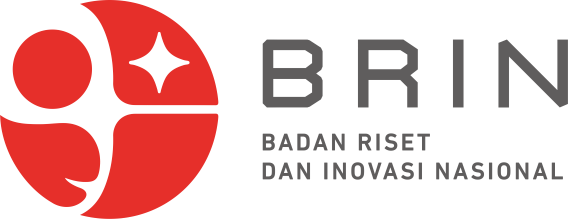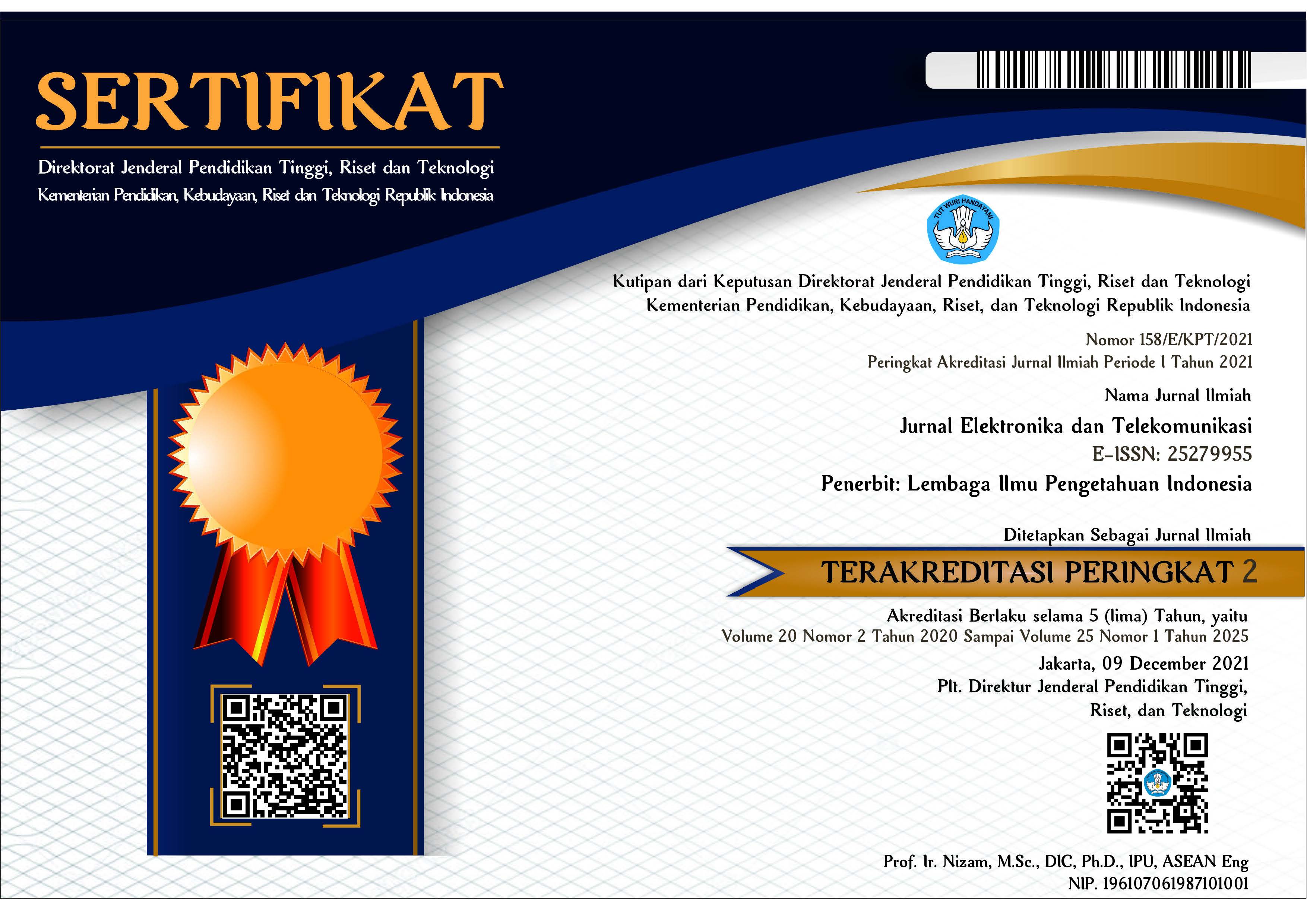Enhancing Urban Waste Management: An IoT-based Automated Trash Volume Monitoring System
Abstract
Industrial development nowadays affects the increase in types of packaging waste which causes the accumulation of waste that has the potential to damage the environment. This research uses an Internet of Things for Automatic Waste Volume Monitoring System, so that waste management in an area can be improved. The purpose of this research is to make it easier for trashman to monitor the volume of the garbage collector on the notification feature. The research method used is the Rapid Application Development methodology with the Requirement Planning stage to analyze and identify the purpose of the system, then design the tools and system and create tools and system. Testing is used to evaluate the results of the tools and system. The result of the research is a prototype of an Internet of Things-based for Automatic Waste Volume Monitoring System tool equipped with a website-based monitoring system and for each user. Apart from that, the system which is equipped with a sensor that can detect the volume of the garbage collector is also equipped with an automatic opening and closing sensor to maintain the health of its users to provide answers to the problem of waste, especially in urban areas.
Keywords: Internet of Things, Monitoring System, Waste, Waste Volume.
Keywords
References
S. H. Bonilla, H. R. O. Silva, M. T. da Silva, R. F. Gonçalves, and J. B. Sacomano, “Industry 4.0 and sustainability implications: A scenario-based analysis of the impacts and challenges,” Sustain., vol. 10, no. 10, 2018, doi: 10.3390/su10103740.
T. Faisal, M. Awawdeh, and A. Bashir, “Design and development of intelligent waste bin system with advertisement solution,” Bull. Electr. Eng. Informatics, vol. 10, no. 2, pp. 940–949, 2021, doi: 10.11591/eei.v10i2.2753.
T. Juwariyah, L. Krisnawati, and S. Sulasminingsih, “Perancangan Sistem Monitoring Terpadu Smart Bins berbasis IoT Menggunakan Aplikasi Blynk,” J. Inform. Rekayasa Elektron., vol. 3, no. 2, p. 12, 2020, doi: https://doi.org/10.36595/jire.v3i2.247.
F. Alqahtani, Z. Al-Makhadmeh, A. Tolba, and W. Said, “Internet of things-based urban waste management system for smart cities using a Cuckoo Search Algorithm,” Cluster Comput., vol. 23, no. 3, pp. 1769–1780, 2020, doi: 10.1007/s10586-020-03126-x.
T. J. Sheng et al., “An Internet of Things Based Smart Waste Management System Using LoRa and Tensorflow Deep Learning Model,” IEEE Access, vol. 8, pp. 148793–148811, 2020, doi: 10.1109/ACCESS.2020.3016255.
M. A. K. Bahrin, M. F. Othman, N. H. N. Azli, and M. F. Talib, “Industry 4.0: A review on industrial automation and robotic,” Jurnal Teknologi, vol. 78, no. 6–13. Penerbit UTM Press, pp. 137–143, Jun. 2016. doi: 10.11113/jt.v78.9285.
B. N. Silva, M. Khan, and K. Han, “Towards sustainable smart cities: A review of trends, architectures, components, and open challenges in smart cities,” Sustainable Cities and Society, vol. 38. Elsevier Ltd, pp. 697–713, Apr. 2018. doi: 10.1016/j.scs.2018.01.053.
M. I. Syarif and Syahrir, “Rancang Bangun Alat Penghancur Limbah Rumah Tangga Berbasis Mikrokontroller Dan Internet of Things ( Iot ),” vol. 2018, pp. 149–153, 2018.
D. Kurniadi and L. Amelia, “Sistem Kendali Perangkat Elektronik Rumah Berbasis Android dan Arduino,” J. Algoritm., vol. 15, no. 2, pp. 1–6, 2018, [Online]. Available: http://journals.sttgarut.ac.id/index.php/algoritma/article/view/117
S. Dubey, P. Singh, P. Yadav, and K. K. Singh, “Household Waste Management System Using IoT and Machine Learning,” Procedia Comput. Sci., vol. 167, no. 2019, pp. 1950–1959, 2020, doi: 10.1016/j.procs.2020.03.222.
P. V. Rao et al., “IoT based waste management for smart cities,” 2020 Int. Conf. Comput. Commun. Informatics, ICCCI 2020, pp. 20–24, 2020, doi: 10.1109/ICCCI48352.2020.9104069.
M. Z. M. Z. Harith, M. A. Hossain, I. Ahmedy, M. Y. I. Idris, T. K. Soon, and R. M. Noor, “Prototype Development of IoT Based Smart Waste Management System for Smart City,” IOP Conf. Ser. Mater. Sci. Eng., vol. 884, no. 1, 2020, doi: 10.1088/1757-899X/884/1/012051.
M. Jia, A. Komeily, Y. Wang, and R. S. Srinivasan, “Adopting Internet of Things for the development of smart buildings: A review of enabling technologies and applications,” Autom. Constr., vol. 101, pp. 111–126, May 2019, doi: 10.1016/j.autcon.2019.01.023.
Article Metrics
Metrics powered by PLOS ALM
Refbacks
- There are currently no refbacks.
Copyright (c) 2024 National Research and Innovation Agency

This work is licensed under a Creative Commons Attribution-NonCommercial-ShareAlike 4.0 International License.























